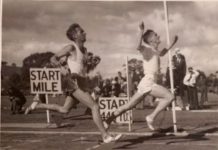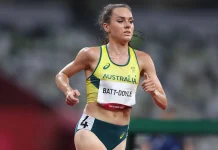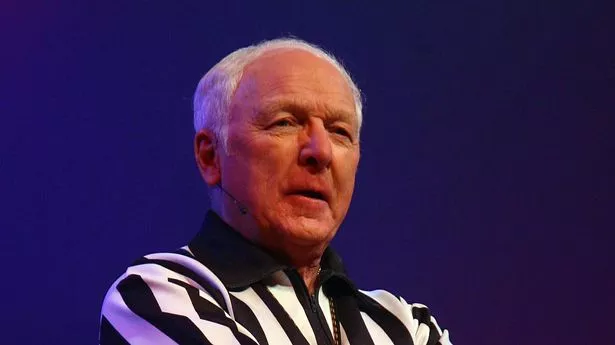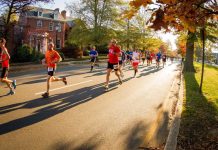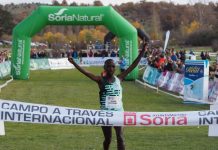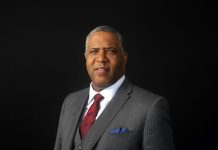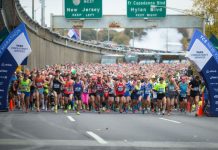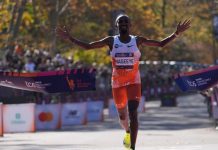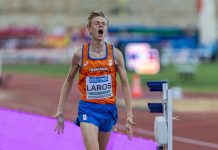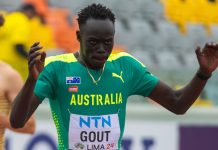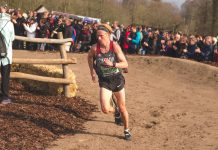John Anderson, famed for his commanding presence on the 1990s television show “Gladiators,” passed away early Sunday morning (July 28) at the age of 92. His well-known call of “Contender, ready! Gladiator, ready!” made him a familiar voice to many, but his contributions to athletics were even more significant.
Long before his TV career, Anderson was a distinguished track and field coach who shaped the careers of numerous Olympians and countless club athletes. Among his most prominent athletes was Dave Moorcroft, whom Anderson began coaching at 16. Under Anderson’s mentorship, Moorcroft set the world 5000m record in 1982 in Oslo with a time of 13:00.41.
“John’s impact on my life and career was immense,” Moorcroft said. “At our club, Coventry Godiva, no one had broken the four-minute mile until John came along. With his guidance, not only did I achieve it, but so did Tim Redman, Colin Ridding, and Steve James. John had a unique way of bringing out the best in people.”
Anderson also coached Olympic heptathlete Judy Simpson, Olympic middle-distance runner Sheila Carey, and Olympic 10,000m silver medalist Liz McColgan. Scottish endurance athletes John Graham and Lynne MacDougall were among others who benefited from his coaching. Even the legendary distance runner Dave Bedford sought Anderson’s guidance at one point.
Hailing from Glasgow, Anderson spent time living in Nuneaton and later Corby. His talent for identifying and nurturing athletes led to the rise of several top performers, including sprint hurdler Will Sharman. In Nuneaton, he discovered Karen Pugh, a neighbor’s daughter with a passion for throwing. Anderson took her to a local athletics club, and she went on to win a bronze medal in discus at the Commonwealth Games in 1986.
Reflecting on Anderson’s influence, Moorcroft said, “Without John, I wouldn’t have become the athlete I did. He didn’t just provide training; he transformed a shy, unsure boy into a confident competitor.”
Moorcroft also cherished Anderson’s dynamic personality: “I appreciated his humor and boldness. His loud voice and bravado were all part of his charm. He was fiercely dedicated to his athletes and never backed down.”
In the 1970s, Anderson’s training methods were seen as unconventional. While others advocated for slow, long-distance running in winter, Anderson emphasized speed. “John would say, if you want to play the violin, you don’t practice on the cello in winter,” Moorcroft recalled.
Anderson’s coaching philosophy involved taking calculated risks, leading athletes on challenging but potentially rewarding paths. “We trained intensely, sometimes pushing the limits,” Moorcroft said. “There was always a risk of injury, but also the potential for remarkable achievements.”
A former teacher, Anderson became one of the early National Coaches for the AAA of England and was close to fellow National Coaches Wilf Paish and Tom McNab. Of the trio, only McNab is still alive.
Moorcroft aptly summarized Anderson’s ability to recognize and develop talent, quoting Michelangelo: “I saw the angel in the stone and carved until I set him free. John had a gift for spotting potential and nurturing it until it flourished.”



